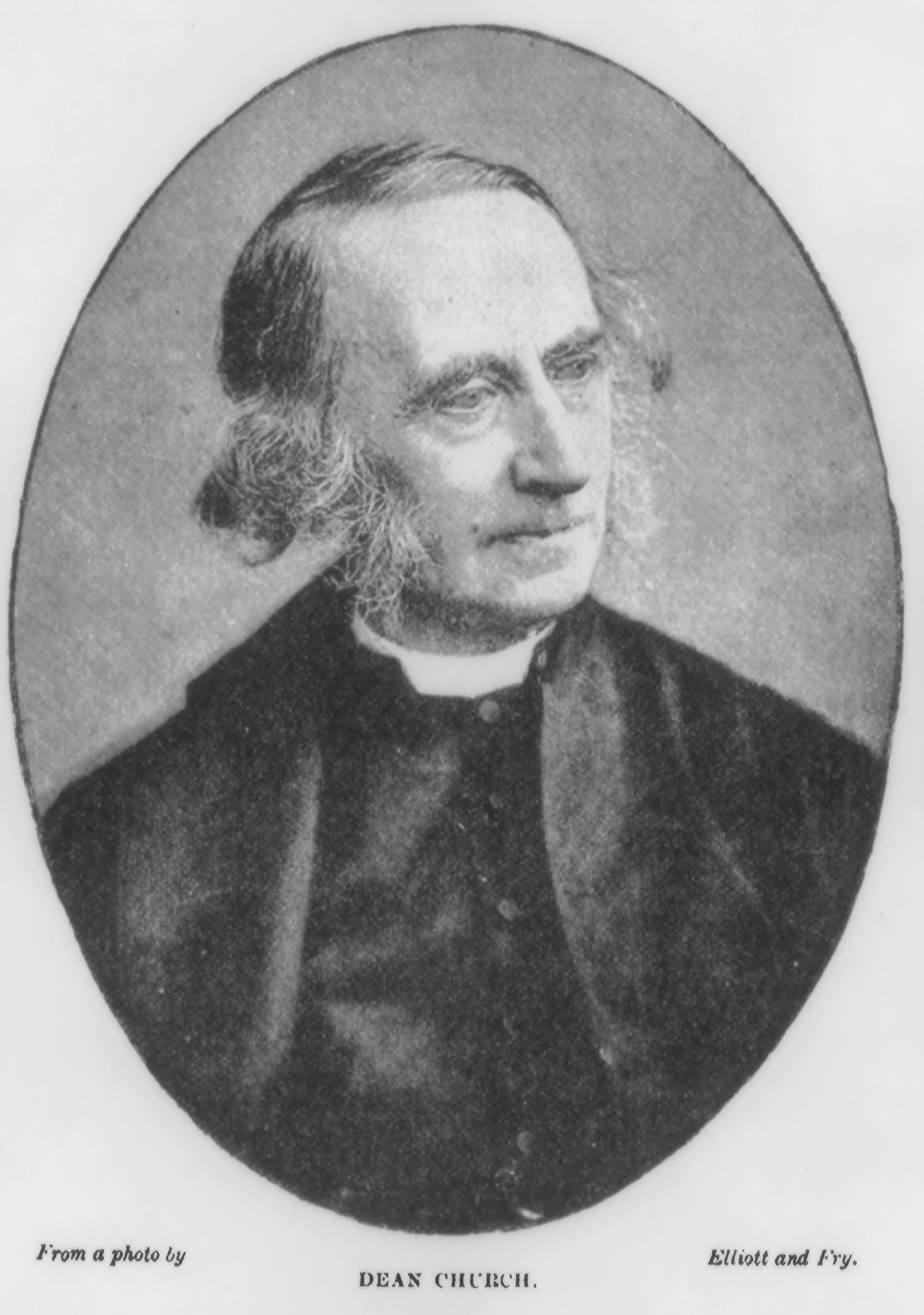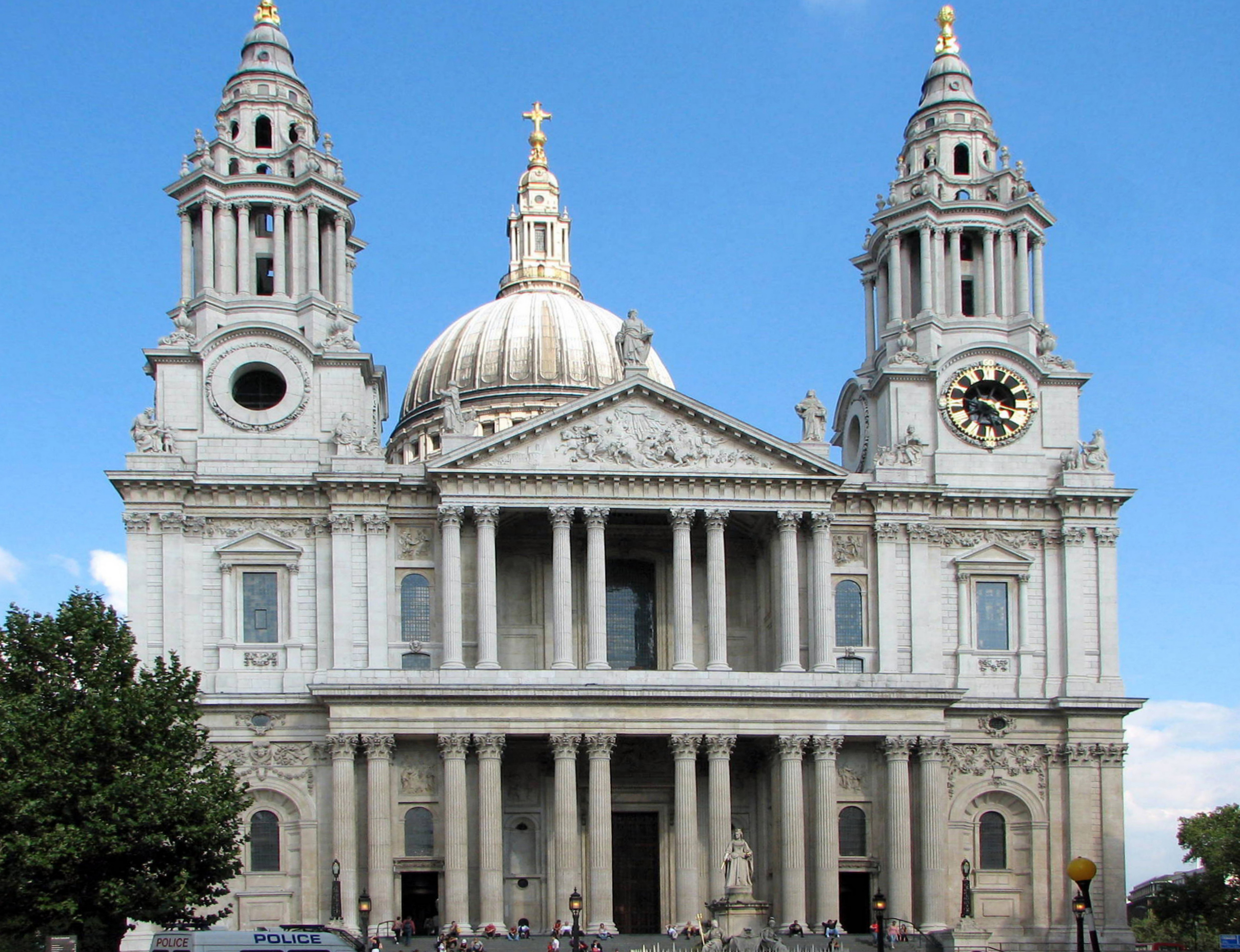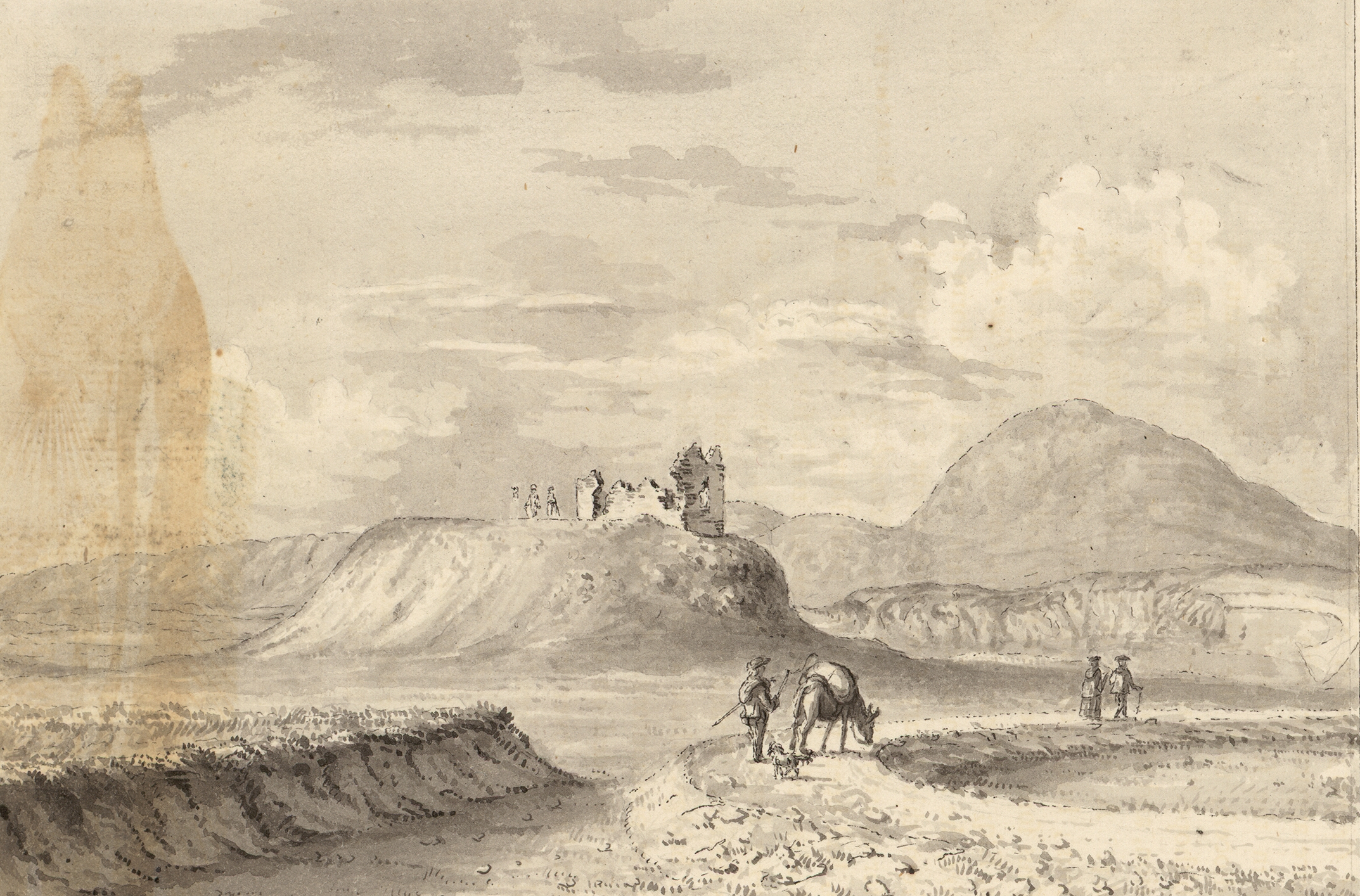|
R. W. Church
Richard William Church (25 April 1815 – 6 December 1890) was an English churchman and writer, known latterly as Dean Church. He was a close friend of John Henry Newman and allied with the Tractarian movement. Later he moved from Oxford academic life to some prominence in the Church of England. Life Richard William was the eldest of three sons of John Dearman Church, a wine merchant, and his wife Bromley Caroline Metzener (died 1845). His grandfather Matthew Church, a merchant of Cork, and his wife, were Quakers, and John was not baptised into the Church of England until his marriage in 1814. His uncle, General Sir Richard Church (1784–1873), achieved fame as a liberator of Greece. The family moved in 1818 to Florence. After his father's death in 1828 his mother settled in Bath and he was sent to a strict evangelical school at Redland, Bristol. He was admitted in 1832 to Wadham College, Oxford, and took first-class honours in 1836. His mother, meanwhile, was remarried to Thom ... [...More Info...] [...Related Items...] OR: [Wikipedia] [Google] [Baidu] |
Richard William Church 0001
Richard is a male given name. It originates, via Old French, from Old Frankish and is a compound of the words descending from Proto-Germanic ''*rīk-'' 'ruler, leader, king' and ''*hardu-'' 'strong, brave, hardy', and it therefore means 'strong in rule'. Nicknames include "Richie", "Dick", "Dickon", " Dickie", "Rich", "Rick", "Rico", "Ricky", and more. Richard is a common English, German and French male name. It's also used in many more languages, particularly Germanic, such as Norwegian, Danish, Swedish, Icelandic, and Dutch, as well as other languages including Irish, Scottish, Welsh and Finnish. Richard is cognate with variants of the name in other European languages, such as the Swedish "Rickard", the Catalan "Ricard" and the Italian "Riccardo", among others (see comprehensive variant list below). People named Richard Multiple people with the same name * Richard Andersen (other) * Richard Anderson (other) * Richard Cartwright (other) * Ri ... [...More Info...] [...Related Items...] OR: [Wikipedia] [Google] [Baidu] |
Somerset
( en, All The People of Somerset) , locator_map = , coordinates = , region = South West England , established_date = Ancient , established_by = , preceded_by = , origin = , lord_lieutenant_office =Lord Lieutenant of Somerset , lord_lieutenant_name = Mohammed Saddiq , high_sheriff_office =High Sheriff of Somerset , high_sheriff_name = Mrs Mary-Clare Rodwell (2020–21) , area_total_km2 = 4171 , area_total_rank = 7th , ethnicity = 98.5% White , county_council = , unitary_council = , government = , joint_committees = , admin_hq = Taunton , area_council_km2 = 3451 , area_council_rank = 10th , iso_code = GB-SOM , ons_code = 40 , gss_code = , nuts_code = UKK23 , districts_map = , districts_list = County council area: , MPs = * Rebecca Pow (C) * Wera Hobhouse ( LD) * Liam Fox (C) * David Warburton (C) * Marcus Fysh (C) * Ian Liddell-Grainger (C) * James Heappey (C) * Jacob Rees-Mogg (C) * John Penrose (C) , police = Avon and Somerset Polic ... [...More Info...] [...Related Items...] OR: [Wikipedia] [Google] [Baidu] |
Edmund Spenser
Edmund Spenser (; 1552/1553 – 13 January 1599) was an English poet best known for '' The Faerie Queene'', an epic poem and fantastical allegory celebrating the Tudor dynasty and Elizabeth I. He is recognized as one of the premier craftsmen of nascent Modern English verse and is often considered one of the greatest poets in the English language. Life Edmund Spenser was born in East Smithfield, London, around the year 1552; however, there is still some ambiguity as to the exact date of his birth. His parenthood is obscure, but he was probably the son of John Spenser, a journeyman clothmaker. As a young boy, he was educated in London at the Merchant Taylors' School and matriculated as a sizar at Pembroke College, Cambridge. While at Cambridge he became a friend of Gabriel Harvey and later consulted him, despite their differing views on poetry. In 1578, he became for a short time secretary to John Young, Bishop of Rochester. In 1579, he published ''The Shepheardes Calender'' ... [...More Info...] [...Related Items...] OR: [Wikipedia] [Google] [Baidu] |
St Anselm
Anselm of Canterbury, OSB (; 1033/4–1109), also called ( it, Anselmo d'Aosta, link=no) after Aosta, his birthplace and (french: Anselme du Bec, link=no) after his Abbey of Bec, monastery, was an Italian Benedictines, Benedictine monk, abbot, philosopher and theology, theologian of the Catholic Church, who held the office of Archbishop of Canterbury from 1093 to 1109. After his death, he was canonization, canonized as a Christian saint, saint; his feast day is 21 April. As archbishop, he defended the church's interests in England amid the Investiture Controversy. For his resistance to the English kings William II of England, William II and Henry I of England, Henry I, he was exiled twice: once from 1097 to 1100 and then from 1105 to 1107. While in exile, he helped guide the Greek Orthodox Church, Greek bishops of southern Italy to adopt Roman rites at the Council of Bari. He worked for the primate bishop, primacy of Canterbury over the bishops of archbishop of York, ... [...More Info...] [...Related Items...] OR: [Wikipedia] [Google] [Baidu] |
Henry Parry Liddon
Henry Parry Liddon (1829–1890), also known as H. P. Liddon, was an English theologian. From 1870 to 1882, he was Dean Ireland's Professor of the Exegesis of Holy Scripture at the University of Oxford. Biography The son of a naval captain, Liddon was born on 20 August 1829 at North Stoneham, near Eastleigh, Hampshire. He was educated at King's College School, and at Christ Church, Oxford, where he graduated, taking a second class, in 1850. As vice principal of the theological college at Cuddesdon (1854–1859) he wielded considerable influence, and, on returning to Oxford as vice-principal of St Edmund Hall, became a force among the undergraduates, exercising his influence in opposition to the liberal reaction against Tractarianism, which had set in after John Henry Newman's conversion to Catholicism in 1845. In 1864 Walter Kerr Hamilton, the Bishop of Salisbury, whose examining chaplain Liddon had been, appointed him prebendary of Salisbury Cathedral. In 1866 he d ... [...More Info...] [...Related Items...] OR: [Wikipedia] [Google] [Baidu] |
Saint Martin's League
Saint Martin's League was a devotional society in the Church of England for letter carriers. It was founded in 1877 by Arthur Henry Stanton at the Church of St Alban the Martyr, Holborn. Its stated object was "Love to God and Man." :To God: by endeavouring to lead good lives. :To Man: by having at heart the common brotherhood of humanity, and trying to live up to the principles of fraternity. :This being interpreted, meant: To provide for London letter-carriers and sorters, houses of rest where they could sleep, eat, or read in quiet. The League's patrons were John Manners, 7th Duke of Rutland and Richard William Church Richard William Church (25 April 1815 – 6 December 1890) was an English churchman and writer, known latterly as Dean Church. He was a close friend of John Henry Newman and allied with the Tractarian movement. Later he moved from Oxford academi .... It was active until 1902."The Life of Father Dolling" Osborne,C.E p 150: London, Edward Arnold, 1903 Referen ... [...More Info...] [...Related Items...] OR: [Wikipedia] [Google] [Baidu] |
Archibald Campbell Tait
Archibald Campbell Tait (21 December 18113 December 1882) was an Archbishop of Canterbury in the Church of England and theologian. He was the first Scottish Archbishop of Canterbury and thus, head of the Church of England. Life Tait was born on Saturday, 21 December, 1811, at 2 Park Place in Edinburgh, Scotland, the son of Crauford Tait WS of Harviestoun (1766–1832) and his wife, Susan Campbell (1777–1814) daughter of Lord Ilay Campbell. He was educated at the High School in Edinburgh and from 1824 at the newly completed Edinburgh Academy, where he was school dux 1826/7. His parents were Presbyterians but he early turned towards the Scottish Episcopal Church. He was confirmed in his first year at Oxford, having entered Balliol College in October 1830 as a Snell Exhibitioner from the University of Glasgow. He won an open scholarship, took his degree with a first-class in '' literis humanioribus'' (classics) in 1833 and became a fellow and tutor of Balliol. He ... [...More Info...] [...Related Items...] OR: [Wikipedia] [Google] [Baidu] |
High Church
The term ''high church'' refers to beliefs and practices of Christian ecclesiology, liturgy, and theology that emphasize formality and resistance to modernisation. Although used in connection with various Christian traditions, the term originated in and has been principally associated with the Anglican tradition, where it describes churches using a number of ritual practices associated in the popular mind with Roman Catholicism and Eastern Orthodoxy. The opposite tradition is '' low church''. Contemporary media discussing Anglican churches erroneously prefer the terms evangelical to ''low church'' and Anglo-Catholic to ''high church'', even though their meanings do not exactly correspond. Other contemporary denominations that contain high church wings include some Lutheran, Presbyterian, and Methodist churches. Variations Because of its history, the term ''high church'' also refers to aspects of Anglicanism quite distinct from the Oxford Movement or Anglo-Catholicism. The ... [...More Info...] [...Related Items...] OR: [Wikipedia] [Google] [Baidu] |
William Ewart Gladstone
William Ewart Gladstone ( ; 29 December 1809 – 19 May 1898) was a British statesman and Liberal politician. In a career lasting over 60 years, he served for 12 years as Prime Minister of the United Kingdom, spread over four non-consecutive terms (the most of any British prime minister) beginning in 1868 and ending in 1894. He also served as Chancellor of the Exchequer four times, serving over 12 years. Gladstone was born in Liverpool to Scottish parents. He first entered the House of Commons in 1832, beginning his political career as a High Tory, a grouping which became the Conservative Party under Robert Peel in 1834. Gladstone served as a minister in both of Peel's governments, and in 1846 joined the breakaway Peelite faction, which eventually merged into the new Liberal Party in 1859. He was chancellor under Lord Aberdeen (1852–1855), Lord Palmerston (1859–1865) and Lord Russell (1865–1866). Gladstone's own political doctrine—which emphasised e ... [...More Info...] [...Related Items...] OR: [Wikipedia] [Google] [Baidu] |
Dean Of St Paul's
The dean of St Paul's is a member of, and chair of the Chapter of St Paul's Cathedral in London in the Church of England. The dean of St Paul's is also ''ex officio'' dean of the Order of the British Empire. The current dean is Andrew Tremlett, who was installed on 25 September 2022. List of deans High Medieval *1090–1107 Wulman *1107–1111 Ranulf Flambard ''(disputed)'' *1111–1138 William de Mareni *1138–1157 Ralph de Langford *1158–1180 Hugh de Mareni *1180–1199 Ralph de Diceto *1200–1216 Alard de Burnham *1216–1218 Gervase de Howbridge *1218–1227 Robert de Watford *1228–1231 Martin de Pattishall *1231–1241 Geoffrey de Lucy *1241–1243 William of Sainte-Mère-Eglise *1243–1253 Henry de Cornhill *1253–1257 Walter de Saleron *1257–1260 Robert de Barton *1260–1261 Peter de Newport *January 1262–July 1262 Richard Talbot *July 1262 – 1263 John de Ebulo *1263–1267 Geoffrey de Fering *1268–1273 John Chishull *1273–1276 Hervey ... [...More Info...] [...Related Items...] OR: [Wikipedia] [Google] [Baidu] |
Richard William Church, Vanity Fair, 1886-01-30
Richard is a male given name. It originates, via Old French, from Old Frankish and is a compound of the words descending from Proto-Germanic ''*rīk-'' 'ruler, leader, king' and ''*hardu-'' 'strong, brave, hardy', and it therefore means 'strong in rule'. Nicknames include "Richie", "Dick", "Dickon", " Dickie", "Rich", "Rick", "Rico", "Ricky", and more. Richard is a common English, German and French male name. It's also used in many more languages, particularly Germanic, such as Norwegian, Danish, Swedish, Icelandic, and Dutch, as well as other languages including Irish, Scottish, Welsh and Finnish. Richard is cognate with variants of the name in other European languages, such as the Swedish "Rickard", the Catalan "Ricard" and the Italian "Riccardo", among others (see comprehensive variant list below). People named Richard Multiple people with the same name * Richard Andersen (other) * Richard Anderson (other) * Richard Cartwright (other) * Ri ... [...More Info...] [...Related Items...] OR: [Wikipedia] [Google] [Baidu] |
Frome
Frome ( ) is a town and civil parish in eastern Somerset, England. The town is built on uneven high ground at the eastern end of the Mendip Hills, and centres on the River Frome. The town, about south of Bath, is the largest in the Mendip district of Somerset and is part of the parliamentary constituency of Somerton and Frome. The population was 28,559 in 2021. Frome was one of the largest towns in Somerset until the Industrial Revolution, and was larger than Bath from AD 950 until 1650. The town first grew due to the wool and cloth industry; it later diversified into metal-working and printing, although these have declined. The town was enlarged during the 20th century but retains a large number of listed buildings, and most of the centre falls within a conservation area. In the 2011 census, the population was given as 26,203. The town has road and rail transport links and acts as an economic centre for the surrounding area. It provides a centre for cultural and sport ... [...More Info...] [...Related Items...] OR: [Wikipedia] [Google] [Baidu] |






